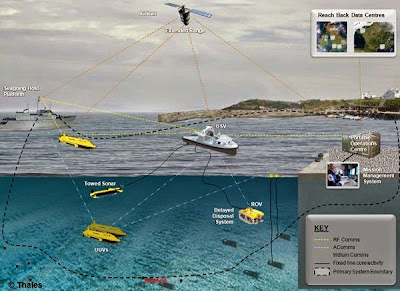Robot Ethics & Future War - Part II
by CAPT (ret) Wayne P. Hughes, Jr., USN, Professor of Practice, NPS, whughes(at)nps.edu Read Part I Here TACTICS AND TECHNOLOGIES In November 2010 the Naval Institute published its robotics essay contest winner, “ How to Fight an Unmanned War ,” by Lieutenant James E. Drennan, a student in the Systems Engineering Analysis curriculum at the Naval Postgraduate School. It is a brilliant piece, not least because it is oriented around tactics. Drennan answers the who, where, when, how, and why questions of combat that incorporates robots. A runner up in the competition is on the Naval Institute web site: “ Our Own Worst Enemy: Institutional Inertia and the Internal Challenges of Embracing Robotics ” by a former Marine, Nathan Hughes (no relation). He contends that the greatest resistance to the development and deployment of robotic systems is neither in the research and development community nor outside the Department of Defense. It is systemic within DoD, created by “a ro...
